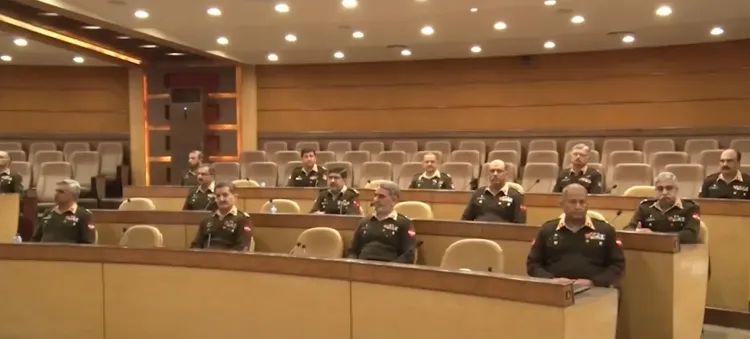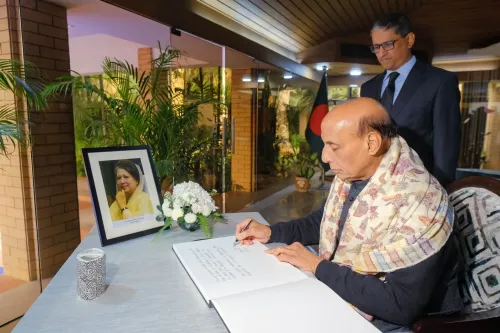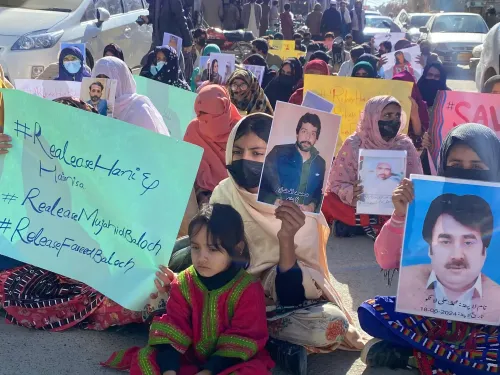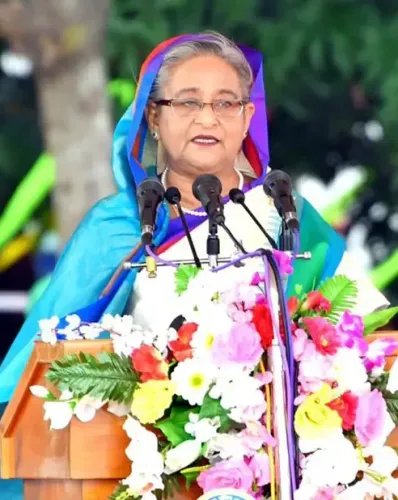Are Pakistani Generals Ignoring Internal Decay While Fighting External Monsters?

Synopsis
Key Takeaways
- Pakistan's military actions reflect attempts to distract from internal issues.
- The TTP has shifted from a strategic ally to a major threat.
- Civilian casualties highlight the risks of military escalation.
- Afghanistan's response indicates a move towards sovereignty.
- International support for Pakistan's military strategy is waning.
New Delhi, Nov 7 (NationPress) In early October, Pakistan executed airstrikes within Afghanistan, aiming at Kabul, Kandahar, and Paktika, asserting it was targeting Tehreek-e-Taliban Pakistan (TTP) militants.
However, these strikes resulted in the tragic death of civilians, including women, children, and young cricketers. In retaliation, Kabul launched an attack that claimed the lives of 58 Pakistani soldiers.
This marks a significant shift, as Afghanistan faced bombardments not from a superpower but from its neighboring country, which had previously served as a refuge.
A report by The Diplomat suggests that these strikes, intended to assert dominance, have instead revealed Pakistan's vulnerability.
The military leadership in Rawalpindi appears to be following an outdated strategy: using external conflicts to overshadow internal issues, according to the report.
For many years, Pakistan has attributed its instability to external forces—be it India, Kabul, or Western nations—while simultaneously fostering militant proxies that have now become a threat to its own existence.
“The TTP, once viewed as a strategic asset, has evolved into a significant threat,” the report states.
The recent air offensive is not a demonstration of confidence but rather a sign of desperation. With an economy on the verge of collapse, rampant inflation burdening the populace, and the erosion of civilian governance, Pakistan's military is diverting attention from internal turmoil by exporting conflict, the report notes.
On the other hand, the Taliban, who were once seen as a tool by Islamabad, are now claiming their sovereignty. “Afghanistan will not engage in another's battle,” declared Afghan Defence Minister Mullah Yaqoob shortly after the airstrikes.
This newfound independence is unsettling for Pakistan's military leaders. Attempts at de-escalation, like the ongoing negotiations in Istanbul mediated by Turkiye and Qatar, remain fragile as Islamabad persists in issuing ultimatums rather than pursuing diplomatic avenues.
Moreover, no external nation appears willing to support Pakistan's aggressive tactics; even China and Iran have called for restraint, concerned about instability that could have ripple effects.
Washington, long exasperated by Pakistan's duplicity, is opting for a hands-off approach.
The recurring lesson in this saga is stark: Pakistan’s coercive diplomacy and militaristic instincts only serve to exacerbate internal divisions.
Every altercation with Afghanistan concludes similarly—Afghanistan withstands while Pakistan falters.
Pakistan's military leaders find themselves ensnared in their own contradictions: battling the very monsters they once created while neglecting the decay within.










